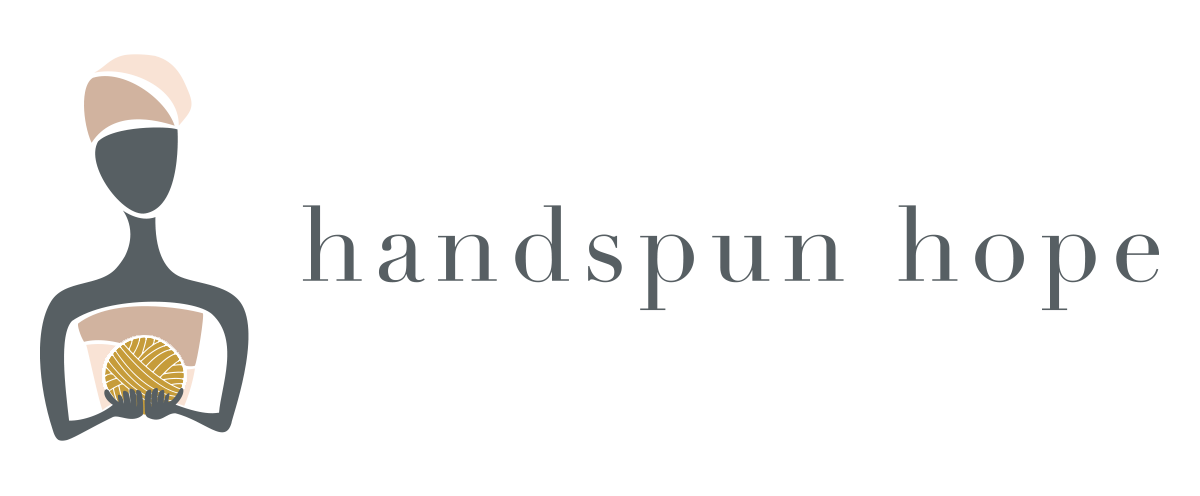Q&A with Handspun Hope Counselor, Mary Claire
As many of you know, trauma counseling has become an integral part of the holistic healing we implement in Rwanda. We are not exaggerating when we say it is life-saving…and life-giving…work. You’ve met our Lead Counselor, Olive Muhawenimana (if you missed Olive’s latest COVID update, you can read it here), but we wanted to introduce you to our other counselor, Mary Claire Umurerwa. Mary Claire’s dedication to the women she counsels is inspiring. Her heart for her work and for the women she works with is apparent. You might recognize Mary Claire from our video about how counseling changed the life of one of our employees named Speciose. (If you haven’t seen that piece yet, please watch it now!) In it, you can see how deeply Mary Claire empathizes with the women she works with.
We’re excited to share her with you so, please welcome Mary Claire!
Q: Mary claire, we’re so happy to talk to you! tell us - How long have you worked as a counselor? How long have you worked for Handspun Hope?
A: I have worked as a counselor since 1991…for twenty-nine years. I have worked for Handspun Hope for six years.
Q: Tell us a little about yourself and your family.
A: I am Claire Umurerwa, I am fifty-nine years old and have been a widow since 1998. I am a Christian born agin in the Anglican Church and a mother of four children; three sons and one daughter. I have three grandchildren. My hobbies are reading and writing and I love sports. A garden of flowers is my refuge and refresher when I am tired. To render service is my joy.
Before getting my education, I was between jobs, trying to earn income to help raise my orphans. I worked as a teacher in primary school and as a diocesan executive secretary in the youth and women’s departiments. In 2007, I decided to upgrade my knowledge status and went to Uganda to attend a theoretical college where I persued an equivalent degree in Missiology and Christian Counseling. Upon graduating in 2010, I was called by the Rwanda Protestant Council, in its center known as the Rwanda Christian Counseling and Training Centre in Musanze, as professional volunteer because it was new and still under construction. It is in this moment, I was called by Handspun Hope to serve as a part-time volunteer and translator for a specialist trauma counselor from USA. In 2013, I was fully employed by Handspun Hope until now.
Q: Is counseling something that is common in Rwanda? Are people comfortable with the idea of talking about their feelings?
A: Frankly speaking, counseling was not a common issue until after the Genocide was perpetrated against Tutsis in 1994. In the years after the genocide, counseling was given value as a proper way of handling the traumatic situations genocide survivors had gone through. Right after the genocide, people were given short training to deal with the situation, but it has since been cherished by all because of its fruitfulness to help people cope with traumatic situations.
Q: Are people comfortable with the idea of talking about their feelings?
A: For the most part, Rwandese people are comfortable with the idea of talking about their feelings because of our cultural and historical background. Rwandans talk less and listen a lot. Education often goes hand in hand with behavioral and attitude managements.
Q: What benefits do you see for the women who receive counseling at Handspun Hope?
A: So many! It promotes restoration by helping them to move to find comfort in a more open way of life. Counseling offers them a dustbin or a trash bin- a place to leave the past traumatic wounds in their hearts. It has allowed them to increase the productivity of their daily lives. It has helped them establish relationships with their peers and helped them to build trust with their family members. It has also changed their mindset when listening to their children’s opinions - to nurture and discipline their children in a loving Christian manner.
Q: Tell us what your work day is like? I know you do much more than counseling.
A: My work day could be compared to that of a soldier on the front lines. I have to be fully equipped to keep a tight schedule when meeting with my clients. I must have big ears for listening to whatever situations or traumas are voiced. I must have observing eyes for seeing beyond what is said or told. And I must have a compassionate heart … and a short, wise tongue.
Q: What is something you see - in your own life, your work or your community - that gives your hope?
A: I find hope in the transformation of the ladies when I hear the difference between their original testimonies and those they give after receiving counseling. I am hopeful seeing women who have thought of taking their own lives take back that life and build income generating businesses. I am hopeful when I hear testimonies from our trained lay counselors - we’ve trained hundreds of them now - concerning the fruit that comes from their work in our surrounding communities. And I am hopeful when families are reunited after long-time hatred, abandonment issues and other family conflicts are resolved.


